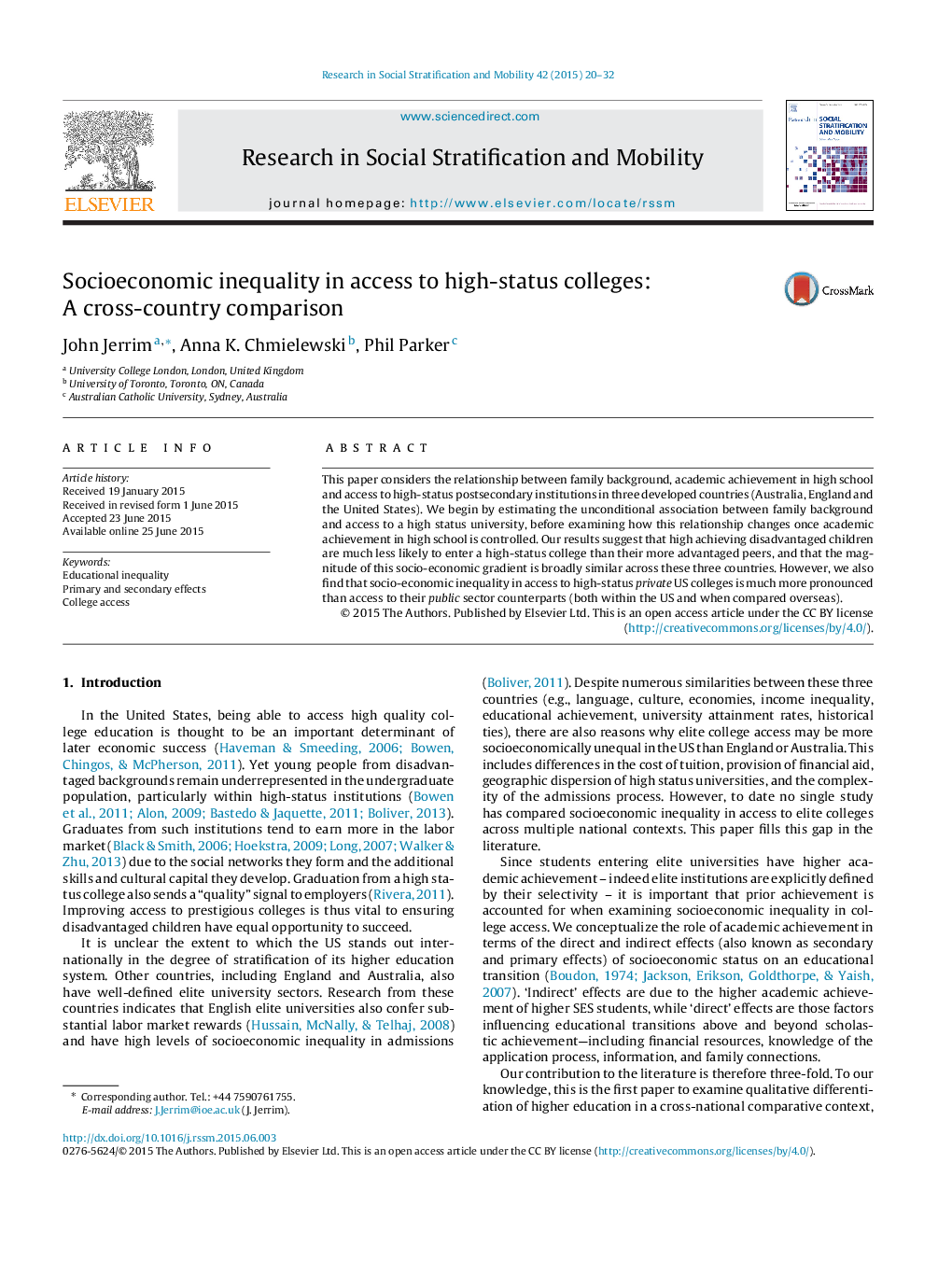| Article ID | Journal | Published Year | Pages | File Type |
|---|---|---|---|---|
| 7410019 | Research in Social Stratification and Mobility | 2015 | 13 Pages |
Abstract
This paper considers the relationship between family background, academic achievement in high school and access to high-status postsecondary institutions in three developed countries (Australia, England and the United States). We begin by estimating the unconditional association between family background and access to a high status university, before examining how this relationship changes once academic achievement in high school is controlled. Our results suggest that high achieving disadvantaged children are much less likely to enter a high-status college than their more advantaged peers, and that the magnitude of this socio-economic gradient is broadly similar across these three countries. However, we also find that socio-economic inequality in access to high-status private US colleges is much more pronounced than access to their public sector counterparts (both within the US and when compared overseas).
Keywords
Related Topics
Social Sciences and Humanities
Economics, Econometrics and Finance
Economics, Econometrics and Finance (General)
Authors
John Jerrim, Anna K. Chmielewski, Phil Parker,
